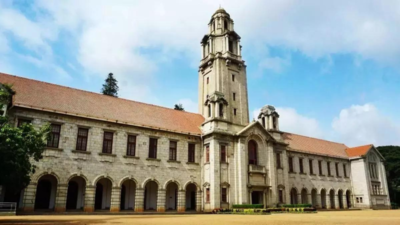ARTICLE AD BOX

BENGALURU: In the global battle against waste, two streams stand out for their notorious resistance to recycling: multi-layered plastics (MLPs) and synthetic textiles. Dubbed “untouchables” in the recycling world, these materials are complex, chemically diverse, and largely destined for landfills or incineration.But a new technology developed at the Indian Institute of Science (IISc) may offer a viable and scalable path forward. The breakthrough comes in the form of “SaLSO”, short for Solvent-Assisted Layer Selective Opening, a patented process created by Prof Suryasarathi Bose and his team at IISc’s department of materials engineering.Used extensively in packaging (like potato chips) for their barrier properties and durability, MLPs are nearly impossible to recycle due to their mixed composition.
At the same time, synthetic textile waste from polyester-based and nylon-based clothing continues to swell landfills and leach microplastics into ecosystems.“Together, MLPs and synthetic textiles represent a mounting global challenge. MLPs alone form a market worth over $168 billion, while the textile industry generates more than 92 million tonnes of waste each year, a significant chunk of it synthetic. Recycling efforts have struggled to keep pace, hamstrung by technical and chemical limitations,” the researchers pointed out.
The new patent builds on earlier work by the team — which has been reported — where SaLSO was tried on Polyurethane and Epoxy, and found to be efficient in transforming those difficult to recycle materials.In the current process that has been granted a patent, SaLSO separates the individual components of complex plastic and textile waste streams, allowing each material to be recovered and reused in high-value applications.
“It’s a solution that’s not just technically impressive but also environmentally sound. It is a game-changer. We’ve developed a process that works on materials considered unrecyclable — category-7 plastics, mixed polyester textiles —and turns them into usable, upcycled products,” Bose told TOI.His co-researchers, Indranil Dey, Ashish and Siddharth, echoed the sentiment, adding that SaLSO could play a catalytic role in scaling up circular economy solutions across sectors that currently have limited recycling pathways.What makes SaLSO remarkable is its simplicity and sustainability. The process uses only seawater and bio-acids — naturally occurring and even edible chemicals — to separate polymers like polyethylene (PE), polypropylene (PP), and polyethylene terephthalate (PET) from complex waste matrices.The result? A recovery yield of more than 99%, achieved without toxic solvents, high temperatures, or energy-intensive steps.In lab trials, the team processed a variety of real-world waste, including snack packets with aluminum linings and flour bags, using a reactor that currently handles about 500 grams of MLP per batch. While small-scale now, the system is designed for easy scale-up to industrial capacities.The extracted polymers are not just recycled, they are upcycled. “...The feedstock produced can enhance the performance of lower-quality plastics, creating stronger, more durable materials without adding virgin polymers or fillers.
And the applications go far beyond theory,” Bose added.With industrial trials in the pipeline and conversations ongoing with potential partners, IISc hopes to bring SaLSO to market soon. If widely adopted, the technology could radically expand the boundaries of what’s considered recyclable, bringing circular economy principles to industries that have long lacked them.



.png)
.png)
.png)
















 2 hours ago
5
2 hours ago
5








 English (US) ·
English (US) ·